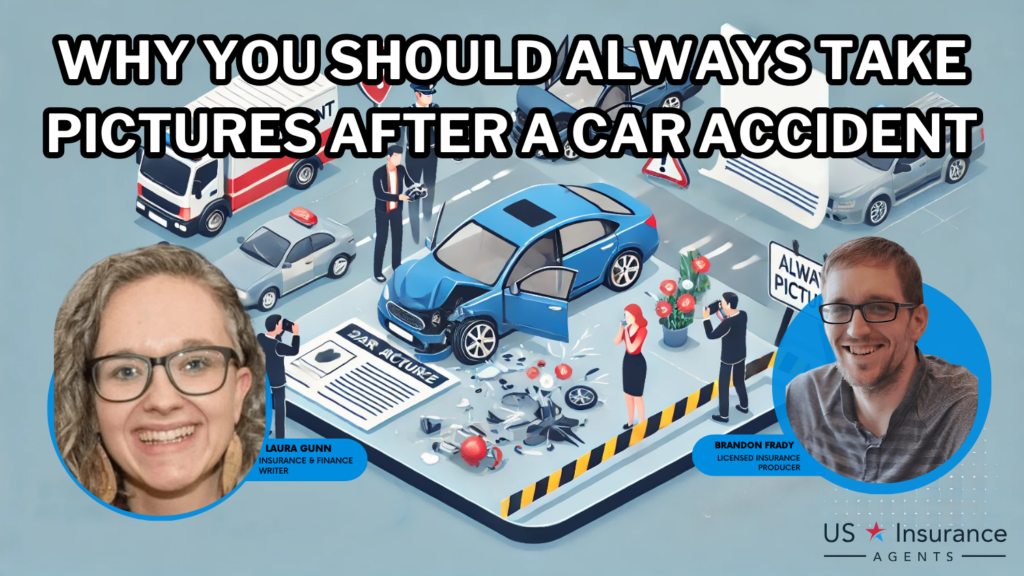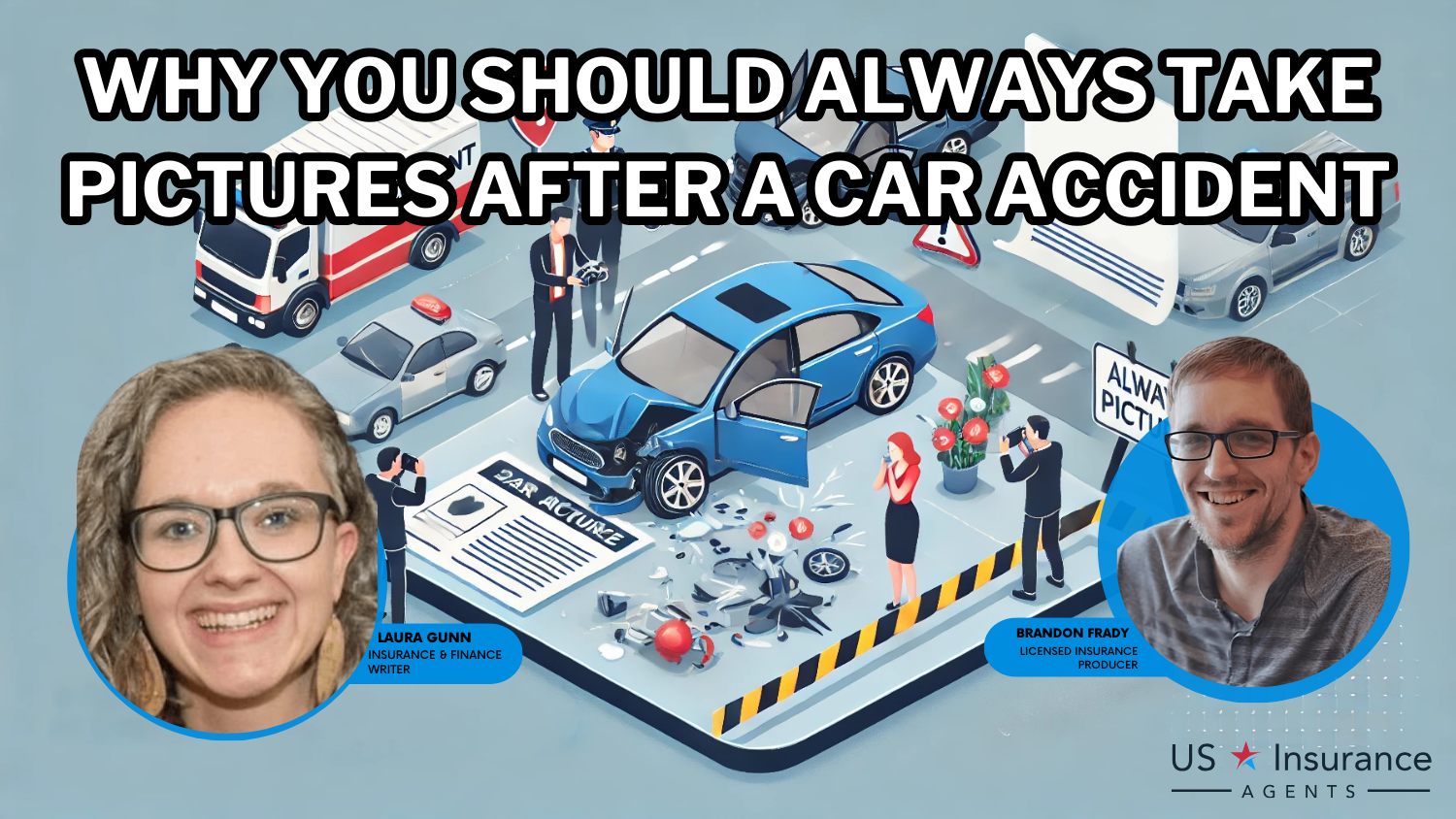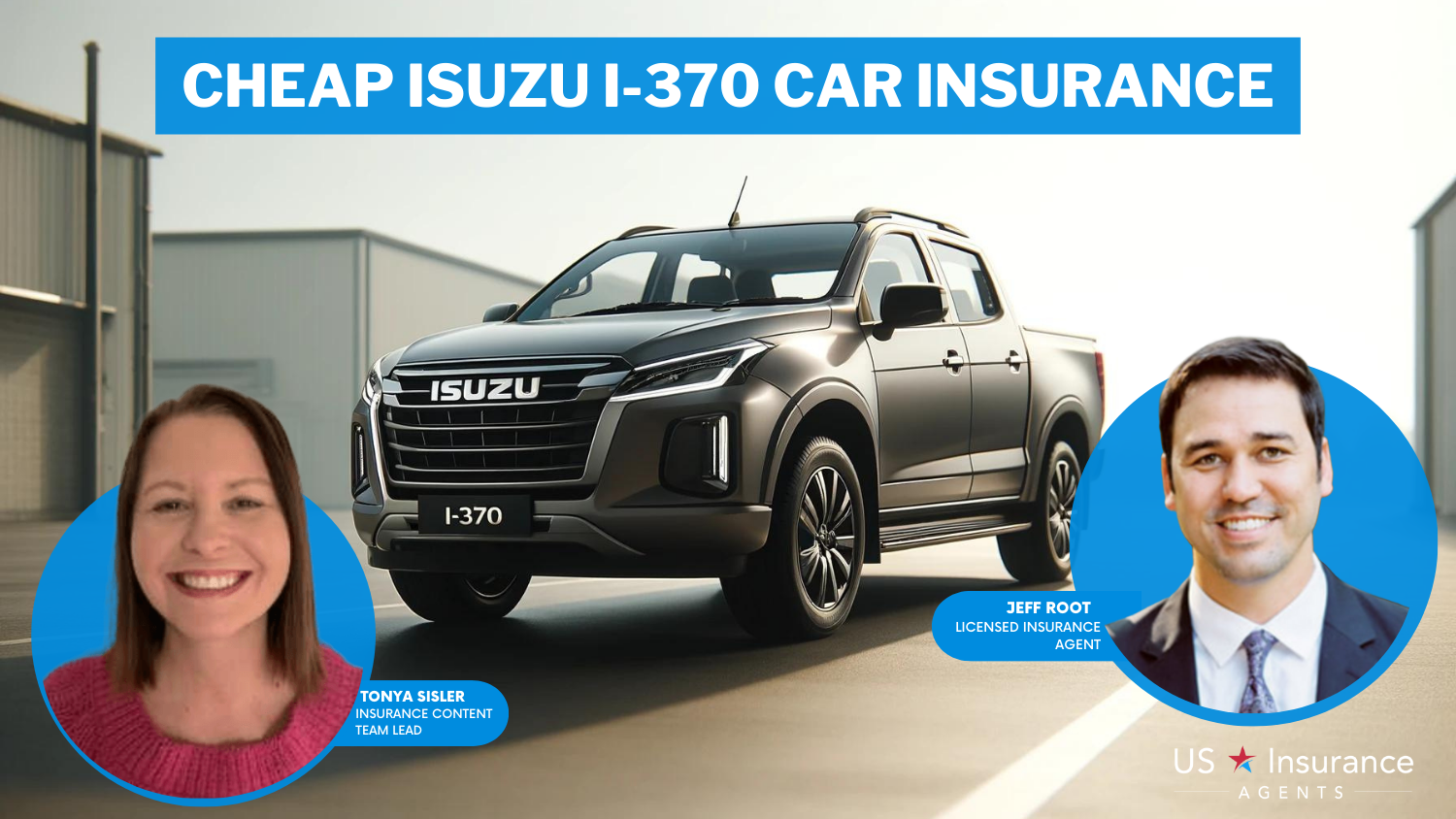Why You Should Always Take Pictures After a Car Accident
Importance of taking pictures after a car accident: Backing claims, supporting witnesses, securing protection. Capturing clear images of the accident scene and damages can provide crucial evidence for insurance claims and legal proceedings. Protect your interests by preserving visual proof of the accident's aftermath.
Read more Secured with SHA-256 Encryption





Table of Contents


Insurance and Finance Writer
Laura Gunn is a former teacher who uses her passion for writing and learning to help others make the best decisions regarding finance and insurance. After stepping away from the classroom, Laura used her skills to write across many different industries including insurance, finance, real estate, home improvement, and healthcare. Her experience in various industries has helped develop both her ...
Laura Gunn


Sr. Director of Content
Sara Routhier, Senior Director of Content, has professional experience as an educator, SEO specialist, and content marketer. She has over 10 years of experience in the insurance industry. As a researcher, data nerd, writer, and editor, she strives to curate educational, enlightening articles that provide you with the must-know facts and best-kept secrets within the overwhelming world of insurance....
Sara Routhier


Licensed Insurance Agent
Brandon Frady has been a licensed insurance agent and insurance office manager since 2018. He has experience in ventures from retail to finance, working positions from cashier to management, but it wasn’t until Brandon started working in the insurance industry that he truly felt at home in his career. In his day-to-day interactions, he aims to live out his business philosophy in how he treats hi...
Brandon Frady
Updated January 2025
In the aftermath of a car accident, taking pictures is an essential step that can significantly impact your insurance claim and legal proceedings. This comprehensive guide explores the reasons behind why you should always capture clear images of the accident scene and damages. We delve into the importance of backing your claims with visual evidence, supporting witness testimonies, and complying with “steer and clear” laws. Discover how photographs can provide irrefutable documentation, especially in disputed cases and hit-and-run incidents.

To ensure you have the best insurance coverage, enter your zip code now and compare rates from top insurance providers. Take control of your protection and make informed decisions by leveraging the power of visual proof. Enter your zip code to compare rates from the best insurance providers.
Steer and Clear Laws
Certain states, such as Georgia, enforce “steer and clear” regulations, essentially stipulating that if you can control and guide the vehicle, relocate it from the road to prevent disruption for other traffic, a concept that aligns with the State Farm steer clear car insurance discount.
In this type of situation, photos that were taken immediately after the accident may be the only evidence of what happened if the two parties do not agree the details. So before you push, pull or drive your car out of the road, take a minute or two to get clear pictures of the damage and any circumstantial details which may have played a part in the problem.
Take Pictures
It is a good idea to keep a camera in your car. With the advent of picture phones, it is not unusual for several people in any group to have a camera already in their hand when an accident occurs.
Taking pictures and locating witnesses who took their own pictures can help you galvanize the case in your favor if it should end up on a court docket.
Keep in mind that the third-party pictures taken by witnesses could be especially helpful as they provide an unbiased account from a random perspective.
Look for Cameras
Look around for public and private cameras. Intersections commonly have cameras which record vehicles running traffic lights, gas stations and convenience stores have cameras to provide safety for the store and its customers. Cameras are everywhere, and the more you can find which might have recorded the accident in progress, the better your position will be when the evidence is presented to a judge or jury.
Read more: Best Business Insurance for Gas Stations
Back Photographs with Witnesses
Pictures are good, but a living person who saw it all is better. While you are taking pictures, look around at any spectators that may have gathered and find out if anyone saw what actually happened. If you have witnesses who can testify to match your pictures, your insurance company will have the resources to back you up in a court of law.
Case Studies: The Importance of Taking Pictures After a Car Accident
Case Study 1: Documenting Vehicle Damage
In a recent car accident, Sarah was involved in a collision with another driver. While both parties claimed they were not at fault, Sarah immediately took out her smartphone and started taking pictures of the damage to both vehicles.
The images she captured proved crucial in determining the extent of the damage and played a significant role in settling the insurance claims. Without the visual evidence, it would have been challenging for Sarah to establish the true condition of her vehicle and seek appropriate compensation.
Case Study 2: Capturing Road Conditions
John was driving on a slippery road when he suddenly lost control of his car and crashed into a tree. When the police arrived at the scene, John had already taken pictures of the icy road conditions that led to the accident.
These images helped the investigators understand the hazardous conditions present at the time of the incident, reinforcing John’s claim that the accident was primarily caused by the lack of road maintenance. The pictures proved instrumental in his subsequent legal battle for compensation against the responsible authorities.
Case Study 3: Recording Injuries and Personal Property Damage
After a rear-end collision, Emma experienced severe whiplash and had her personal belongings, including a laptop and a camera, damaged. Realizing the importance of documenting her injuries and property damage, she took detailed photographs of her injuries, the damaged items, and the overall scene of the accident.
These images became critical evidence in her personal injury claim, helping her prove the extent of her physical injuries and the financial loss incurred due to the damage of her personal belongings.
Case Study 4: Capturing Witness Testimonies
When Alex was involved in a multi-vehicle collision, he noticed several bystanders who witnessed the accident. Understanding the value of witness testimonies, Alex quickly approached them and requested their contact information.
Additionally, he took photographs of the witnesses, ensuring their identities were properly recorded. Later, when it came time to gather statements from the witnesses, Alex was able to provide their contact information to the authorities and insurance companies, strengthening his case with reliable eyewitness accounts.
Case Study 5: Documenting Traffic Signals and Road Signs
During a car accident at an intersection, Jennifer noticed that the traffic signal facing her had malfunctioned, causing confusion among drivers and ultimately leading to the collision. Recognizing the significance of this information, Jennifer took pictures of the malfunctioning traffic signal and the related road signs.
The photographic evidence played a pivotal role in establishing the liability of the responsible parties and highlighting the negligence of the municipality in maintaining the traffic control devices.

Frequently Asked Questions
Why should I take pictures after a car accident?
Taking pictures after a car accident can back up witness testimony and support your insurance claim. It is sometimes the only way to document what happened, especially in instances of hit-and-run.
What are steer and clear laws?
Steer and clear laws, such as those in Georgia, state that if you can steer and move the car, you should get it off the roadway so that other traffic is not affected.
Why are pictures important in disputed accidents?
Pictures can be presented in a court of law as evidence of what happened in disputed accidents.
What type of pictures should I take after a car accident?
You should take clear pictures of the damage and any circumstantial details which may have played a part in the accident.
How can witnesses help with my insurance claim?
Witnesses can provide testimony that matches your pictures and back up your insurance claim in a court of law.
Should I keep a camera in my car?
It is a good idea to keep a camera in your car in case of an accident. With the advent of picture phones, it is not unusual for several people in any group to have a camera already in their hand when an accident occurs.
Get a FREE Quote in Minutes
Insurance rates change constantly — we help you stay ahead by making it easy to compare top options and save.




